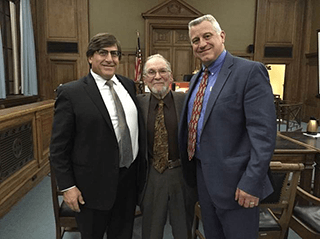Pharmaceutical Errors Are All Too Common
Pharmaceutical Errors Are All Too Common
The public relies on pharmacists to provide them with safe, effective prescription drugs and knowledgeable counsel. Unfortunately, pharmaceutical mistakes happen all too frequently, with disastrous consequences. It is estimated that in 2011 alone, 1.5 million people were harmed by medication errors and 100,000 people died as a result of those errors.
There is a reason why prescription drugs are only dispensed by licensed pharmacists. Although these medications have the power to heal, they can also harm if taken incorrectly. The public relies on pharmacists to dispense drugs in a safe manner. The wrong medication or the wrong dose can lead to disastrous consequences, including:
- Organ failure
- Brain damage
- Stroke
- High or low blood pressure
- Paralysis
- Heart attack
- Death
The FDA defines a medication error as:
“any preventable event that may cause or lead to inappropriate medication use or patient harm while the medication is in the control of the health care professional, patient, or consumer. Such events may be related to professional practice, health care products, procedures, and systems, including prescribing; order communication; product labeling, packaging, and nomenclature; compounding; dispensing; distribution; administration; education; monitoring; and use.”
Common Pharmaceutical Errors
As that lengthy definition would indicate, medication errors can occur any number of ways at multiple stages of the treatment process. Some of the more common pharmaceutical mistakes that lead to injury or death include:
- Pharmacist Mistakes. Even if a drug has been properly prescribed by a physician, the pharmacist tasked with filling the prescription can make many mistakes behind the counter. Pharmacists may mix up drugs with similar sounding names, handwritten prescriptions may be illegible, or drugs may be improperly labeled.
- Improper Dosage. According to the FDA, 41% of deaths caused by medication errors are due to an improper dosage. This can occur because a physician prescribed too much or too little of a medication or because of a mistake in administering a drug. Low dosages can fail to effectively treat the condition for which the drug is prescribed while higher dosages pose the risk of a fatal overdose
- Failure to Account for Allergies. Sometimes, a patient will have had no indications of a drug allergy at the time a medication is prescribed. Other times, however, a doctor will fail to examine a patient’s medical history or inquire about known allergies. Allergic reactions to medications can range from minor symptoms such as hives, itchy eyes, congestion, and rashes, to severe symptoms such as difficulty breathing, rapid heart rate, and disorientation.
- Adverse Drug Interactions. Certain drugs, while safe in and of themselves, can have catastrophic effects when taken in conjunction with other medications. Doctors and pharmacists should be aware of the medications a patient is currently taking to ensure that the interactions between those drugs and the intended prescription won’t cause additional, unintended harm.
James “Jim” Nugent: Connecticut Pharmaceutical Error Lawyer
If you have suffered negative consequences as the result of a pharmaceutical error, it is important to speak to an experienced personal injury attorney right away. The law in Connecticut places strict time limits on your ability to file a claim. It is also critical to act quickly to preserve evidence of your injury and treatment. Call us today at (203) 795-1111 to discuss your case.


